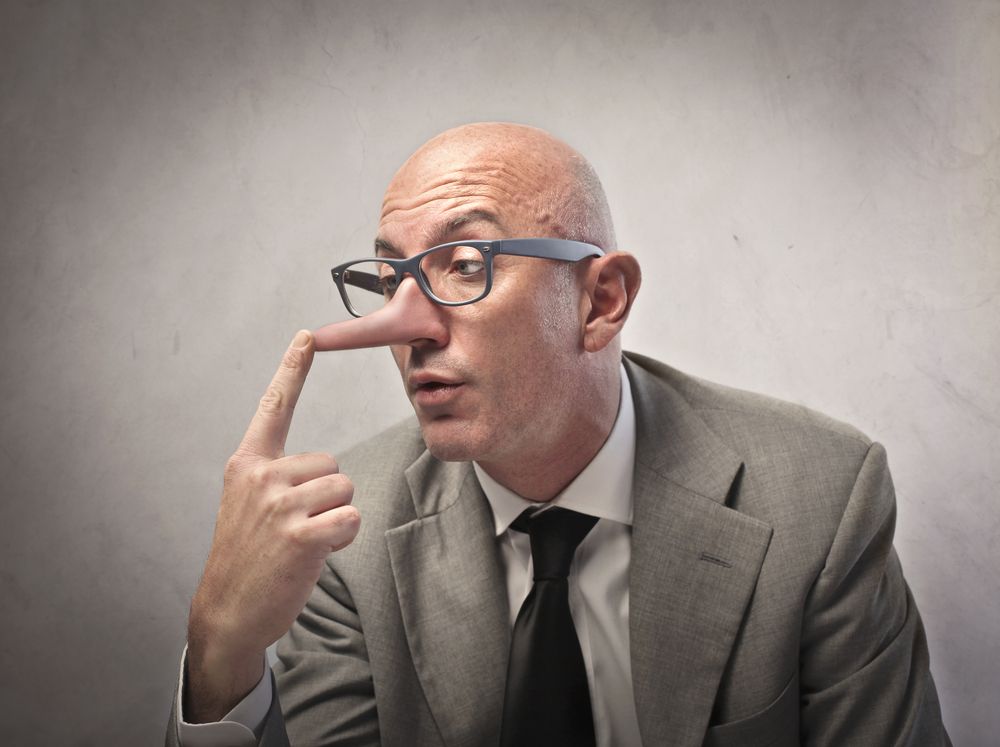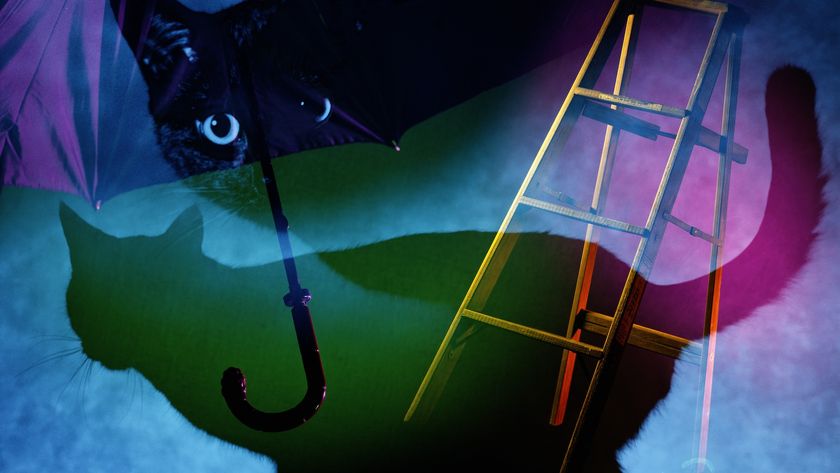
Human beings are abysmal at detecting lies consciously, but their subconscious mind may have a better nose for deceit, new research suggests.
People who are asked to detect people lying about a theft do no better than chance when asked to explicitly sniff out the liars, but are more likely to link liars with words like "untruthful," according to a study published online March 21 in the journal Psychological Science.
Human lie detectors?
Scores of studies have shown that humans are bad lie detectors. [How to Pass a Lie Detector Test]
"If I give you ten videos where five people are lying and five people are telling the truth, I can predict that you and everybody else is going to perform at 50 percent," said study co-author Leanne ten Brinke, a social psychologist at the University of California at Berkeley. "It's just as accurate as flipping a coin."
But that seems strange from an evolutionary perspective: After all, wouldn't it have been handy for ancient humans to detect liars and cheaters and steer clear of them?
That made ten Brinke and colleagues Dana Carney and Dayna Stimson, who are both at the University of California at Berkeley, wonder whether people can subconsciously sniff out deceit.
Sign up for the Live Science daily newsletter now
Get the world’s most fascinating discoveries delivered straight to your inbox.
Unconscious knowledge
To find out, they asked one group of college students to come into an empty room and either steal, or not take, $100 that had been stashed inside books in the room. The researchers then instructed the participants to say they knew nothing about the money when questioned by an experimenter, essentially getting half the participants to lie. (Students were told they could keep the money if they managed to convince the experimenters of their truthfulness.)
They then asked a group of 72 students to detect the liars versus the truth-tellers.
Just as in other studies, the amateur sleuths performed at about chance.
But in a measure of bias known as the implicit association test, the participants more quickly associated the liars in the videos with words like "untruthful," or "deceitful," and the truth-tellers with words like "honest" or "valid."
Subtle awareness
One explanation for the results is that people who are consciously trying to spot liars look for stereotypical, but inaccurate "tells" such as averting the gaze or looking shifty-eyed.
But the subconscious mind may be less easily duped.
"Our unconscious might be picking up on the right things that really are there," ten Brinke said.
People who lied in the videos reported being more stressed and frightened, and they also spoke faster and were less cooperative. It's possible the brain can sense those differences in people's demeanors without knowing the cause, ten Brinke speculates.
From an evolutionary perspective, it may not be necessarily to know someone is lying.
"It doesn't need to be alarm bells going off in our heads saying 'don't trust them!" ten Brinke told Live Science.
Instead, it could just be a vague unease that helps people avoid interactions with an untruthful person, she said.
Now the researchers want to see if there's something in the viewer's response to liars or truth-tellers that can help researchers quickly and cheaply identify liars, ten Brinke said.
Follow Tia Ghose on Twitter and Google+. Follow Live Science @livescience, Facebook & Google+. Original article on Live Science.

Tia is the managing editor and was previously a senior writer for Live Science. Her work has appeared in Scientific American, Wired.com and other outlets. She holds a master's degree in bioengineering from the University of Washington, a graduate certificate in science writing from UC Santa Cruz and a bachelor's degree in mechanical engineering from the University of Texas at Austin. Tia was part of a team at the Milwaukee Journal Sentinel that published the Empty Cradles series on preterm births, which won multiple awards, including the 2012 Casey Medal for Meritorious Journalism.











